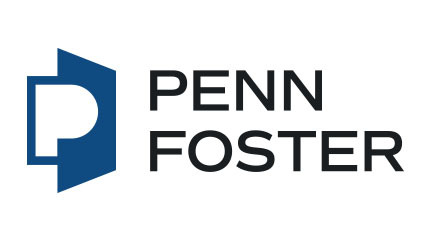Open the Door to a New Career with Penn Foster
NYICD is no longer accepting new students but you can still take the next steps toward a new career or further your education with our affordable, online sister school, Penn Foster. With over 130 years of experience in distance education and a broad range of accredited career, college, and certificate programs in in-demand fields, you can open the door to a new job, build industry-recognized skills, and take the next step toward the life you want – still completely online, at your own pace.
In-Demand Healthcare Career Training with Penn Foster
Take the first steps toward an in-demand, rewarding career in healthcare with Penn Foster. With accredited online programs in clinical and administrative roles, you can build the skills you need on your schedule, online.
Personalized Support from Experts in Your Field of Study

Are you interested in providing professional care to animals?
Once you complete our Veterinary Assistant Course, you’ll be ready to start a career in this exciting field.
Course Description
Our Veterinary Assistant course will teach you all the procedures required in today's veterinary office environment. Course topics include office procedures, medication fundamentals, animal behavior comprehension, small-animal nursing, and surgical preparation. From front-office management to animal handling, you'll learn it all. After graduating, you’ll be ready to provide care that fully meets industry standards and protocols.
Veterinary Assistant Course Outline
Unit 1: The Veterinary Office
1.1 Introduction to Veterinary PracticeThe history of veterinary medicine; types of veterinary practices; the team approach to veterinary medicine; rolls and responsibilities of team members; personal qualifications; professionalism and ethics; laws and agencies related to veterinary practice.
Front-office team members and veterinary assistant roles; greeting clients on the phone and in person; telephone triage; scheduling appointments; accounts receivable; pet health insurance; inventory control and reorder points.
General requirements and commonly used formats for medical records; records maintenance; common office forms; procedures for admitting and discharging patients.
Communication with animals and owners; the effect of body language on client communication; the human-animal bond; pet loss and grief; compassion fatigue.
Unit 2: Veterinary Anatomy, Physiology, and Pharmacology
2.1 Veterinary TerminologyCommon terms used to describe animals; anatomical terms of direction; terms for body regions; word roots and combining forms.
Cells and tissues; skeletal and muscular systems; the integument; circulatory and respiratory systems; nervous system and special senses; endocrine, digestive, urinary, and reproductive systems.
Dosage forms and calculations; prescriptions; storage and handling of medications; drugs for specific body systems; antimicrobials; antiparasitics; anti-inflammatories; disinfectants and antiseptics.
Unit 3: Small-Animal Nursing
3.1 Animal Behavior and RestraintDog and cat breeds; ethology; preventing and correcting behavior problems; house training; canine body language; restraint equipment and techniques.
Aspects of preventive care; proper housing and sanitation for dogs and cats; nutritional needs; feeding methods for different life cycle stages; common zoonotic diseases; vaccine requirements.
Patient history and physical examination; therapeutic bathing; grooming and skin care; nail trimming; administering medications; fluid therapy; wound care and bandaging.
Unit 4: Clinical Procedures
4.1 Surgical Preparation and AssistingThe role of the veterinary assistant in surgical nursing; using appropriate terminology related to surgical procedures; sterilizing surgical instruments and equipment; suture materials; asepsis in the surgical suite.
Collecting and preparing samples for diagnostic testing; lab equipment; hematology and clinical chemistry tests; immunology and urinalysis tests; common parasites of dogs and cats.
Principles of X-ray generation; commonly obtained radiographic views for dogs and cats; proper patient positioning during radiographs; safety concerns; radiology record-keeping procedures.
What You Get
- Instant access to high-quality course materials
- One-to-one mentorship from a professional in the field
- Video training featuring tips from industry veterans
- Certification preparation materials including free practice tests
NYICD offers convenient online training to anyone looking to gain the independence that comes with a new career. Study anytime, anywhere at your own pace and get certified in a matter of months. Call 1-800-239-9275 or enroll online today.







